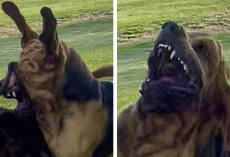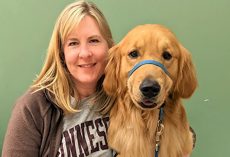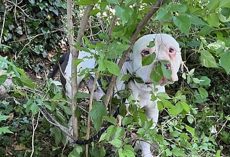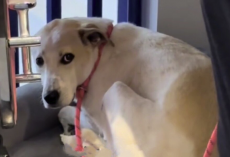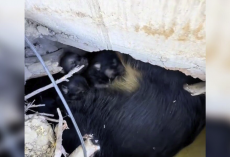This little girl crawls to get the dog and the Chocolate Lab waits for her to get as far as she could before showing affection.
Do labs love babies?
It’s a question that has long puzzled scientists: do animals, particularly dogs, experience the same emotions as humans?
Although there is no definitive answer, there is evidence that dogs do indeed love their owners, and a new study suggests that this may also be true for another member of the animal kingdom: laboratory rats.
The study, published in the journal Frontiers in Neuroscience, found that rats show signs of increased happiness and affection when they are around babies.
When the researchers placed adult rats in a room with baby rats, they observed that the adults spent more time close to the babies and engaged in playful behaviors such as nose-to-nose sniffing and chasing.
In addition, the adults showed an increase in levels of oxytocin, a hormone associated with bonding and affection.
The findings suggest that rats, like dogs, may form strong emotional attachments to members of their own species, particularly young ones.
Although more research is needed to confirm these results, the study provides intriguing evidence that animals may be more emotionally complex than we previously thought.
It’s common knowledge that dogs are man’s best friend. But what about other kinds of animals? Many people believe that cats dislike humans, but this isn’t always the case.
In fact, there are many anecdotal reports of cats forming strong bonds with their human guardians. Similarly, laboratory rats have also been shown to form close attachments to their caretakers.
In a study published in the journal Frontiers in Psychology, researchers found that laboratory rats display many of the same behaviors as domestic dogs when they interact with their human guardians.
For example, the rats tended to approach their guardians more often when they were hungry or in need of assistance.
They also displayed submissive behaviors, such as licking their guardians’ hands or face. In addition, the rats formed strong bonds with their guardians over time, and they showed signs of distress when they were separated from them.
These findings suggest that laboratory rats are capable of forming strong emotional bonds with humans. This ability may be due to the rats’ intelligence and social nature. Therefore, it is possible that labs love babies just as much as dogs do!


